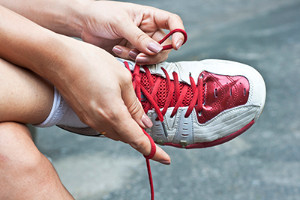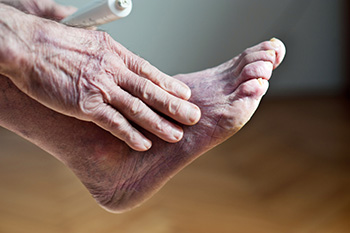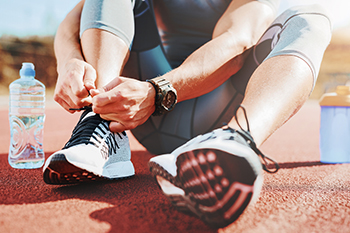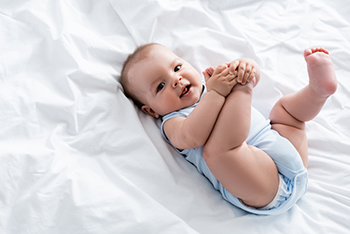March 2023
Determining the Right Shoe Based on Running Type

Choosing the right running shoe is essential to many runners. This can help them to achieve their running goals, which can range from training for a marathon to weekend jogging. One of the most important factors in choosing running shoes is choosing the right size. it is important to allow space approximately the size of a thumb at the top of the shoe. This can prevent the toes from moving forward while running downward. Additionally, it is beneficial for the upper part of the shoe to fit snugly against the foot, and this can prevent the foot from sliding. Knowing the type of running that will be done is crucial in buying the right type of shoes. Additionally, it is essential to know how many miles will be run, and if the surfaces are uneven trails or smooth ground. A podiatrist can help you to decide which type of running shoe is best for you, and it is suggested that you contact this type of doctor who can help you make the right choice.
You should always make sure your running shoes fit properly in order to avoid injury. For more information, contact John Killough, DPM from Regional Foot Center. Our doctor can provide the care you need to keep you pain-free and on your feet.
Choosing the Right Running Shoe for Your Foot Type
Improper shoe sizing can cause a myriad of problems for your feet. Shoes that don’t fit you properly can lead to muscular imbalances in your body, which can result in foot, knee, and hip injuries.
Tips for Finding the Right Running Shoe
- Make sure you have a thumb’s width of wiggle room between the end of your longest toe and the front of the shoe.
- There should be little to no slipping at the heel
- Don’t assume your size in one shoe brand will be your size in another
- Do not lace up your shoes too tightly
- Walk around in the store with your new shoes before you buy them
If you have any questions please feel free to contact our our offices located in Charleston and Effingham, IL . We offer the newest diagnostic and treatment technologies for all your foot and ankle needs.
When Poor Circulation Hurts

Poor circulation of the feet can occur when an inadequate amount of blood flows to the feet and lower leg area of the body. As a result of poor circulation in the feet, an individual might experience any number of different symptoms. For example, a patient could potentially experience discoloration and sensations of numbness or tingling. Sometimes, it could be possible to experience pain from poor circulation in the feet. If an individual experiences pain or cramping from poor circulation, they should seek out immediate medical attention from a trusted medical professional. Pain in the feet from poor circulation could potentially be a symptom of diabetes. If you are someone that struggles with poor circulation in the feet, it is suggested that you contact a podiatrist as soon as possible.
Poor circulation is a serious condition and needs immediate medical attention. If you have any concerns with poor circulation in your feet contact John Killough, DPM of Regional Foot Center. Our doctor will treat your foot and ankle needs.
Poor Circulation in the Feet
Poor blood circulation in the feet and legs is can be caused by peripheral artery disease (PAD), which is the result of a buildup of plaque in the arteries.
Plaque buildup or atherosclerosis results from excess calcium and cholesterol in the bloodstream. This can restrict the amount of blood which can flow through the arteries. Poor blood circulation in the feet and legs are sometimes caused by inflammation in the blood vessels, known as vasculitis.
Causes
Lack of oxygen and oxygen from poor blood circulation restricts muscle growth and development. It can also cause:
- Muscle pain, stiffness, or weakness
- Numbness or cramping in the legs
- Skin discoloration
- Slower nail & hair growth
- Erectile dysfunction
Those who have diabetes or smoke are at greatest risk for poor circulation, as are those who are over 50. If you have poor circulation in the feet and legs it may be caused by PAD and is important to make changes to your lifestyle in order to reduce risk of getting a heart attack or stroke. Exercise and maintaining a healthy lifestyle will dramatically improve conditions.
As always, see a podiatrist as he or she will assist in finding a regimen that suits you. A podiatrist can also prescribe you any needed medication.
If you have any questions please feel free to contact our offices located in Charleston and Effingham, IL . We offer the newest diagnostic and treatment technologies for all your foot and ankle needs.
Skateboarding Effects on the Feet and Ankles

Slamming and smashing our feet into the pavement as we skateboard can take its toll on the ankles and feet. The most frequent foot and ankle problems skateboarders encounter are heel bruises, flat feet, and ankle rolls. If you skateboard and want to continue doing this for some time, it is important to take care of your feet. Wash, dry, and moisturize them daily. Wear properly fitting skate shoes and only wear them for skating. When the feet are sore, take a break, rest, and even soak the feet. Skate shoes do not provide the best support in terms of padding and arch support. Extra support in the heel of skate shoes may help prevent heel bruises. A looser-fitting shoe and gel inserts might help with foot pain caused by flat feet. If you are into skateboarding and are experiencing foot problems, it is suggested that you make an appointment with a podiatrist for an evaluation and treatment options.
Sports related foot and ankle injuries require proper treatment before players can go back to their regular routines. For more information, contact John Killough, DPM of Regional Foot Center. Our doctor can provide the care you need to keep you pain-free and on your feet.
Sports Related Foot and Ankle Injuries
Foot and ankle injuries are a common occurrence when it comes to athletes of any sport. While many athletes dismiss the initial aches and pains, the truth is that ignoring potential foot and ankle injuries can lead to serious problems. As athletes continue to place pressure and strain the area further, a mild injury can turn into something as serious as a rupture and may lead to a permanent disability. There are many factors that contribute to sports related foot and ankle injuries, which include failure to warm up properly, not providing support or wearing bad footwear. Common injuries and conditions athletes face, including:
- Plantar Fasciitis
- Plantar Fasciosis
- Achilles Tendinitis
- Achilles Tendon Rupture
- Ankle Sprains
Sports related injuries are commonly treated using the RICE method. This includes rest, applying ice to the injured area, compression and elevating the ankle. More serious sprains and injuries may require surgery, which could include arthroscopic and reconstructive surgery. Rehabilitation and therapy may also be required in order to get any recovering athlete to become fully functional again. Any unusual aches and pains an athlete sustains must be evaluated by a licensed, reputable medical professional.
If you have any questions please feel free to contact our offices located in Charleston and Effingham, IL . We offer the newest diagnostic and treatment technologies for all your foot and ankle needs.
Infant Foot Massage

Any new parent surely knows the challenges of caring for a cranky baby. Not only can newborn babies and infants engage in persistent crying, they can also experience general discomfort. This can make caring for the infant difficult for all kinds of parents. Performing a very gentle foot massage on an infant might possibly yield positive health benefits for an them. Specifically, performing a gentle foot massage might alleviate discomfort in the newborn’s body. Foot massages might even be beneficial to other parts of the newborn’s body that are not near the feet or lower legs, such as the upper abdominal area. However, of course, it is always important to first consult with a trusted medical professional, such as a podiatrist to ensure that you are doing what is best for your infant’s health. It is suggested that you schedule an appointment with a podiatrist today if you are caring for a newborn.
Making sure that your children maintain good foot health is very important as they grow. If you have any questions, contact John Killough, DPM of Regional Foot Center. Our doctor can provide the care you need to keep you pain-free and on your feet.
Keeping Children's Feet Healthy
Having healthy feet during childhood can help prevent medical problems later in life, namely in the back and legs. As children grow, their feet require different types of care. Here are some things to consider...
Although babies do not walk yet, it is still very important to take care of their feet.
Avoid putting tight shoes or socks on his or her feet.
Allow the baby to stretch and kick his or her feet to feel comfortable.
As a toddler, kids are now on the move and begin to develop differently. At this age, toddlers are getting a feel for walking, so don’t be alarmed if your toddler is unsteady or ‘walks funny’.
As your child gets older, it is important to teach them how to take care of their feet.
Show them proper hygiene to prevent infections such as fungus.
Be watchful for any pain or injury.
Have all injuries checked by a doctor as soon as possible.
Comfortable, protective shoes should always be worn, especially at play.
If you have any questions please feel free to contact our offices located in Charleston and Effingham, IL . We offer the newest diagnostic and treatment technologies for all your foot and ankle needs.





